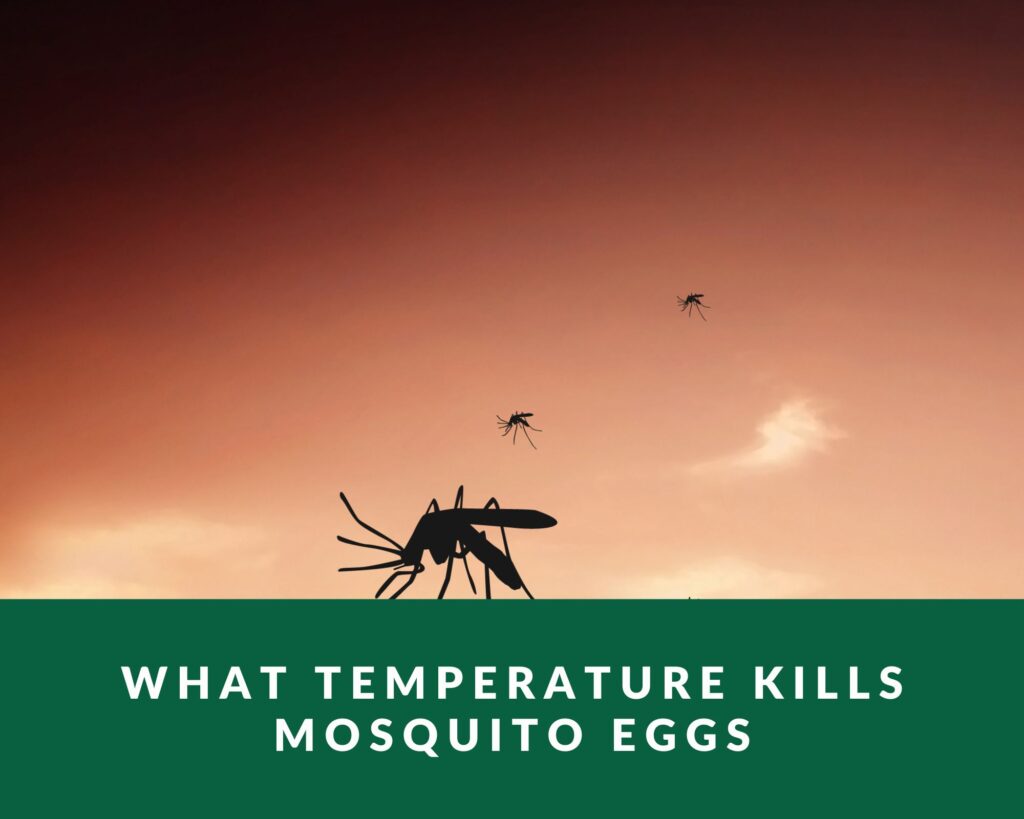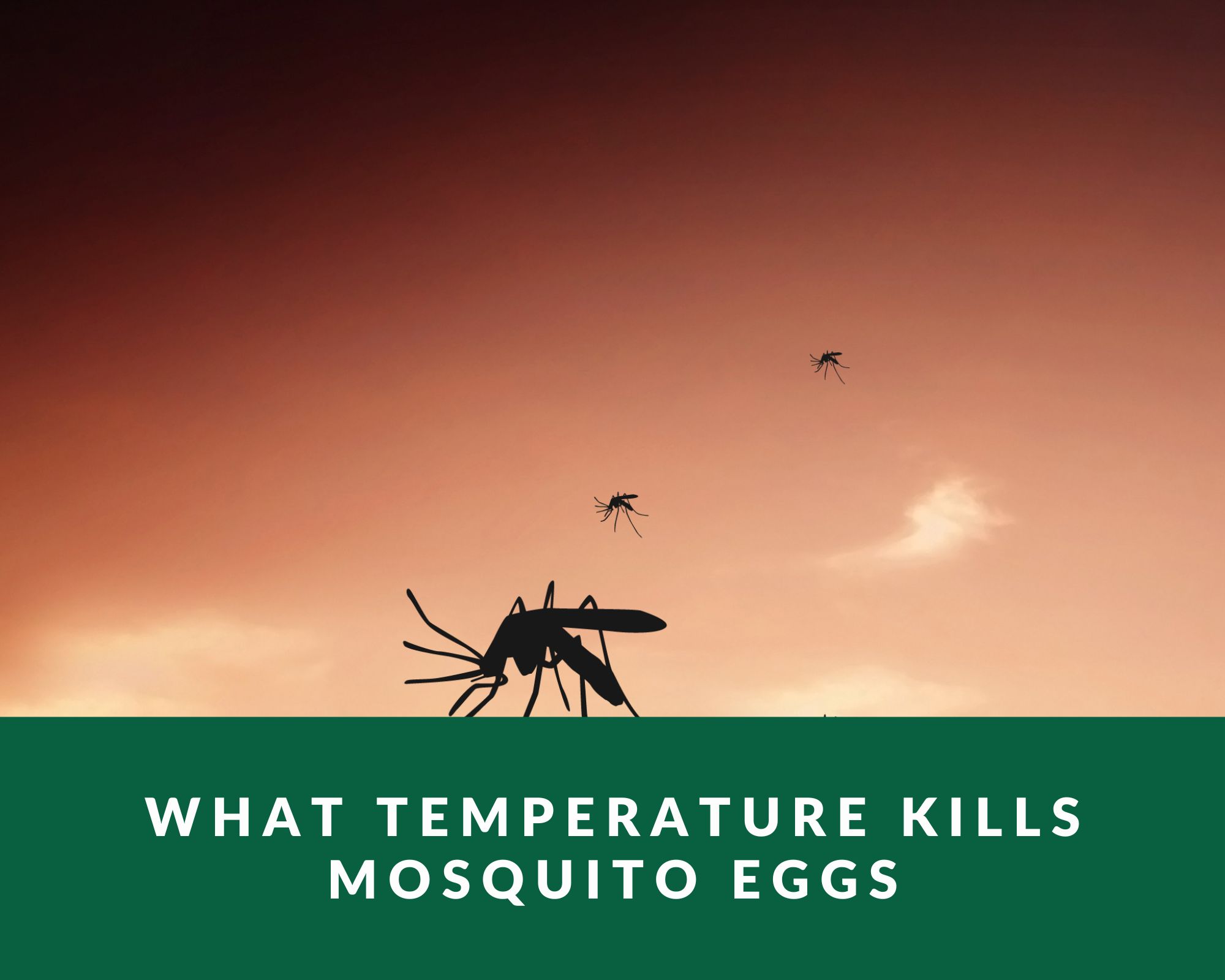
Does it ever get too hot for mosquito eggs to survive? Everyone is aware that mosquitoes are more prevalent in tropical and subtropical areas. What temperature kills mosquito eggs? Given that mosquitoes cannot survive in colder temperatures, what temperature does a mosquito egg die? Continue reading to learn about this and more.
Ideal temperatures for mosquitoes to thrive
At 80 degrees Fahrenheit, mosquitoes perform at their peak, become sleepy at 60 degrees. However, they are unable to function below 50 degrees. In tropical regions, mosquito activity is constant. When cool weather arrives in temperate climates, several kinds of adult mosquitoes stop biting. They go into diapause to survive the winter.
Where do mosquitoes live during development
Where these insects reside is mostly determined by their life cycle. Based on the preferences of the mosquito species, eggs may be laid in your yard’s stagnant water. They may live in moist soil or other crisped locations, but they must be acclimated to water to hatch. This is so that the mosquito larvae can grow while feeding on algae, bacteria, protozoa, and other aquatic organisms.
The larvae go through four molts before reaching the pupal stage of the mosquito life cycle. Even though they don’t eat or molt, the pupae live their entire lives in the water.
A mosquito becomes an adult once it emerges from its pupal covering. These freshly mature mosquitoes will stay on the water surface until their wings solidify and are able to take flight.
How does temperature affect mosquito activity
Mosquito behavior and timing are greatly influenced by the weather. Insects with chilly blood include mosquitoes. Due to their inability to control their internal temperatures, their temperature is essentially the same as that of their surroundings.
Rainfall (Mosquito breeding stage)
The number of mosquito species exceeds 3,500. They may have different behavioral patterns, but they all require water. Although the form of egg differs amongst mosquito species, all species use water to lay their eggs.
Stagnant water left in plant pot trays, flowerpots, open containers around the house can develop into enticing mosquito habitats. Making sure that this kind of stagnant water is eradicated is one of the keys to mosquito control.
Mosquito breeding conditions are optimal during floods. More rain increases the likelihood of puddles and the reproduction of mosquitoes. An increase in the amount of rainfall may mean an increase in mosquito activity. Specifically, if puddles have been left unattended for mosquito eggs to hatch in.
Mosquitoes are more intelligent than we give them credit for, even if frequent rain might wash away the eggs produced. The cunning ones will deposit their eggs in locations such as tires, which gather water and offer some insulation.
An inch of water is all that is required for a female mosquito to deposit batches of 100–200 eggs. Within 24 to 48 hours after she lays her eggs, the larvae begin to develop.
Summer (Mosquito biting stage)
Mosquitoes are generally known to like warm climates. Mosquitoes become active whenever the temperature rises above 10 degrees on a regular basis. But their activity spikes at 26 degrees and higher.
Although different species are active at various times, most mosquitoes are most active at dawn and twilight. Mosquitoes flourish in warm evening temperatures because extended sun exposure actually dehydrates them. A higher risk of infection is associated with warm temperatures.
According to studies, the West Nile virus can multiply in warmer climates in mosquitoes that carry it. The same is true with Zika mosquitoes; the hotter the weather, the more effectively they spread the disease.
This is due to the fact that mosquitoes can transfer illnesses more quickly in warmer air. This gives them more time to do so. Merged with the fact that mosquitoes become more hungry for blood at warmer weathers there could be an outbreak.
Mosquitoes, though, may find the weather to be too hot and dry. Mosquitoes may be less active in some overheated environments.
Winter (Mosquito disappearance stage)
As cold-blooded creatures, mosquitoes essentially cease to exist at temperatures below 10 degrees. Even while it might seem like they’ve all vanished, they do have ways to endure the cold.
In the winter, a lot of mosquitoes hibernate and go inactive, searching for holes to wait for warmer weather. However, several species cannot endure the harsh climate.
During fall, some female mosquitoes lay their eggs in water, where they eventually freeze and go dormant. When the temperature warms up, the frozen larvae are kept until they thaw out and start causing havoc once more.
What temperature kills mosquito eggs
When the temperature falls below 50°F (10°C), mosquito eggs cannot survive because they need warm temperatures to hatch. Mosquito larvae quickly perish at 95°F (35°C) or greater temperatures. Adult mosquitoes cannot endure temperatures of 105°F (41°C), which will promptly kill them.
Conclusion
There are mosquitoes in practically every nation on the earth. Mosquitoes can be found in colder countries, however they normally favor hot, muggy climates. Most species can become dehydrated in overly hot or dry environments. However they are most active when the temperature is above 80 degrees Fahrenheit.
Mosquitoes that are suited for warmer areas can’t survive a harsh winter. Many of them fall dormant below 60 degrees Fahrenheit and may even perish below 50.
Take efforts to control your pest problem and keep your house secure from bothersome pests today.

